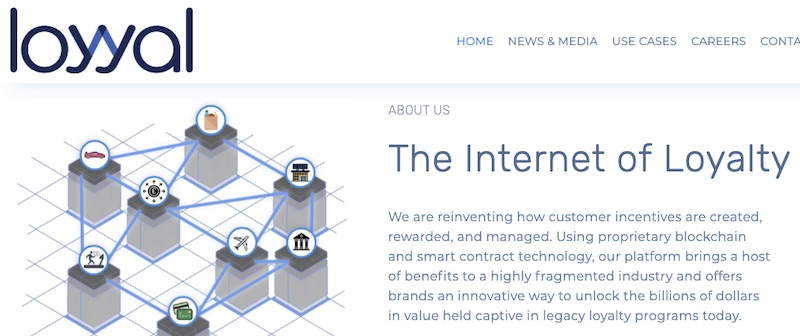
Multiple companies offer rewards platforms using crypto tokens rather than traditional points. Loyall, for example, allows businesses to run their own branded loyalty programs on the blockchain.
By some estimates, it costs five times as much to acquire a customer than to keep an existing one. Thus fostering customer loyalty is critical for most businesses, especially ecommerce. Ecommerce merchants have hundreds of potential technologies and techniques to encourage customer loyalty, but blockchain technology and blockchain-based crypto tokens offer unique advantages.
Points vs. Tokens
Many consumers have come to associate loyalty with points programs, such as from airlines, hotels, and credit cards. With these programs, the connection is clear between today’s purchase and future benefits. However, as much as 70 percent of consumers are reportedly not sure how many loyalty points they have with their favorite brand.
Loyalty programs can impact a retailer’s bottom line with startup, marketing, and reward costs. As a decentralized public ledger, blockchain technology can be an affordable way to store and share reward point activity and balances. Unlocking this information potentially opens up more ways for consumers to be aware and use their points, which reinforces brand loyalty.
The goal of rewards programs is to encourage consumers to purchase more. But companies are starting to replace point-based programs with crypto tokens, as seen in recent announcements by Malaysian airline AirAsia and ecommerce giant Rakuten. Both are migrating their loyalty points programs into blockchain-based tokens.
When evaluating tokens vs. loyalty points, consider the following criteria.
- Fungibility. Cash is an established motivator. However, most loyalty points are only redeemable for products and services. Except for a few credit card programs, loyalty points often have no real cash value. Tokens, on the other hand, are typically traded on an exchange, so consumers can easily and immediately convert them to real currency or other crypto tokens. This fungibility can add tremendous value and flexibility for the consumer. Retailers, however, will need to ensure it achieves their goal of higher sales.
- Program rules. Businesses often exercise wide discretion in setting up their loyalty-points programs. Minimum spends, expiration dates, points devaluations, and other program changes are common. The result is complexity that can reduce the incentive and ability for consumers to redeem, as evidenced by an estimated 48 trillion loyalty points unredeemed by consumers globally. Conversely, tokens are unrestricted, potentially reducing the redemption confusion.
- Consumer perception. Consumers generally understand loyalty points, even if program complexity makes it difficult. Tokens and cryptocurrency, however, are still in the hype cycle or unknown by most consumers. This hype may create higher perceived value (and thus increased loyalty), or it may turn consumers off. Regardless, crypto tokens have consumer-adoption challenges that loyalty points do not. Businesses using tokens will have to overcome this through education and smart user experience.
Consumer Data
Loyalty programs can also provide businesses with much data about participating consumers to tailor products, services, and marketing campaigns. However, consumers are more sensitive than ever about exposing their personal info. This sensitivity will likely increase.
Companies such as Bloom, Datawallet, and Pillar capitalize on the unique security aspects of blockchain technology to give users more control of their data. Retailers can create their private blockchain to protect consumer data better or can partner with one of the many projects building that functionality globally.
Vendors
So which companies offer blockchain technology for loyalty programs? Here are three leading players.
- Qiibee allows businesses to run their own branded loyalty programs on the blockchain, creating custom tokens as rewards and helping merchants with setup and rollout.
- Loyyal has a network of retailers using the blockchain to foster consumer loyalty network-wide.
- DigitalBits offers a marketplace for loyalty points, allowing consumers to trade or purchase points if the brand participates.




